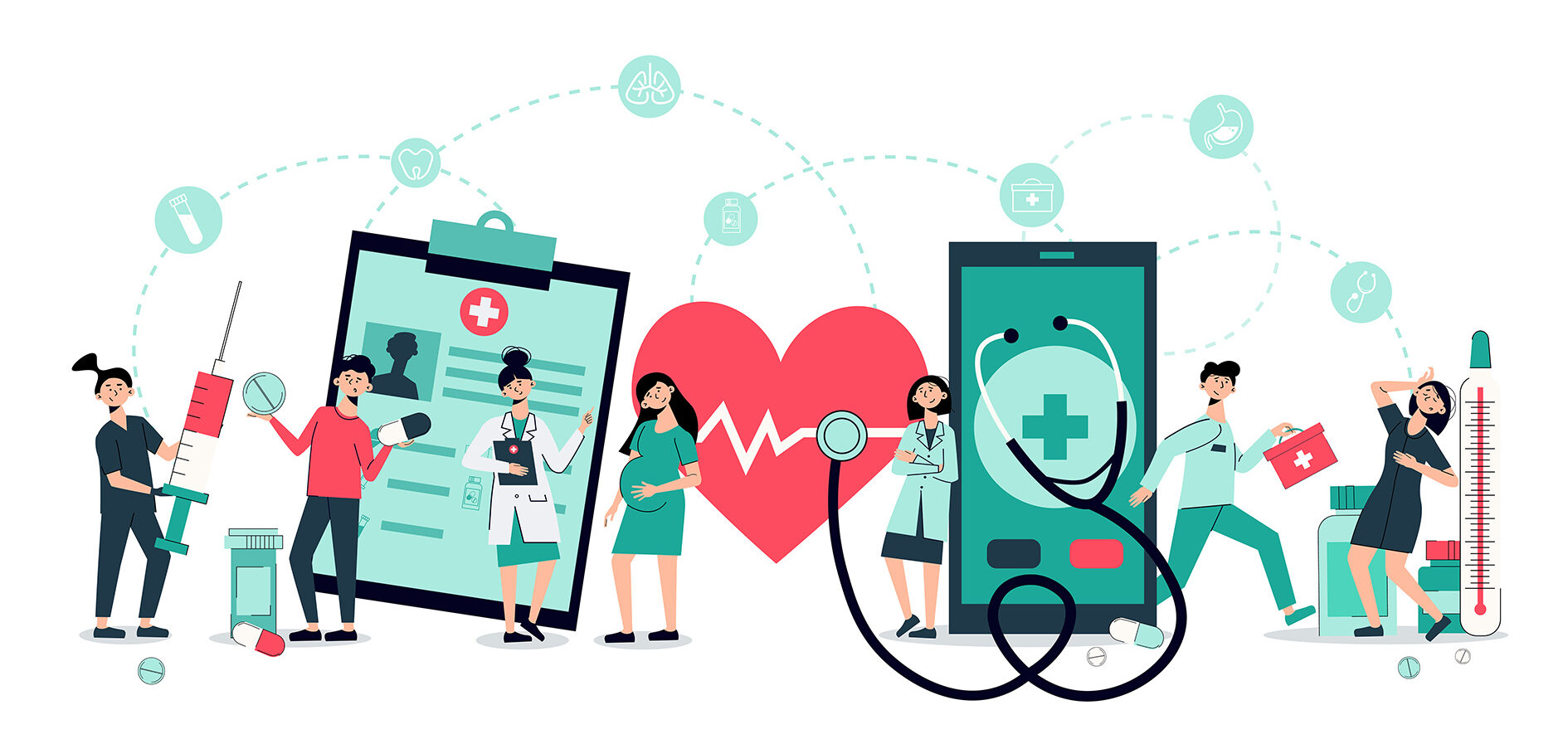Health data: ethical and legal challenges
Connected watches, purchases at the pharmacy and laboratory tests are all possible sources of health data collection. Increased digitization and the diversity of collection points, combined with ever more efficient information storage and processing capabilities, make health data a highly coveted commodity. The impact of their use in new information and communication technologies is difficult to measure. It is therefore necessary to gain a better understanding of the uses of “sensitive” health, in order to initiate a reflection under the prism of ethics.

Data is everywhere, and so is health data!
This month, anarticle published inThe Lancet Health Journal caught our attention. The article deals with the commercialization of health data for medical research and health algorithm design in the United States. Data brokers are commonplace, and this type of sale has become very lucrative in a country where regulation is much more liberal than in Europe. Indeed, once data is anonymized, it can be sold without the prior consent of the person in question. And the possible applications are numerous, both in industry and in clinical practice: better design of a therapeutic molecule, assistance with clinical diagnosis or even management of patient files.
The data business
The commercialization of data is generating disparities in research opportunities in the USA as well. Indeed, those who “have the means” have an advantage when it comes to accessing databases. In fact, academic research, which has far fewer resources than companies, cannot afford to buy a lot of data. Ultimately, research is hindered and slowed down. Ultimately, research is hindered and slowed down. One of the major problems is reproducibility. Peer validation is an essential element of scientific methodology. As soon as the initial study is carried out using private databases, checking reproducibility becomes very complicated. Added to this, the opacity of data collection and processing means that researchers are unable to properly assess all the potential biases of their study.
ethnic and socio-economic bias
In the United States, access to healthcare underpins a certain socio-economic level.Consequently, the people who populate the databases reflect this level. Studies show that the specificity and sensitivity of tools designed with this type of bias are unfavourable for groups under-represented in the database. This phenomenon leads to ethnic and socio-economic discrimination in the care pathway. This is why ensuring that the data used in a study includes a representative panel of potential tar gets is crucial to guaranteeing the quality of the model.
So what it work in France?
At first glance, conservative, France ensures a strict data protection policy. Article 6 of the RGPD (General Data Protection Regulation) imposes a ban on the unauthorized commercialization of health data. Processing or disclosure to commercial partners must be subject to prior explicit consent from the patient.
To promote science and in view of the potential that this data offers, in 2019 the government is launching the Health Data Hub, a digital platform for storing data of interest to health research. The main aim is to centralize data in order to harmonize security levels, improve cross-referencing and facilitate access for scientists.
For Whom? and why?
Healthcare data is an exceptionally rich source of information, useful for medical research and algorithm design, especially for the pharmaceutical industry, MedTech start-ups and academic researchers. The tools developed are designed to be integrated at all levels of the healthcare process (screening, diagnosis, prognosis, treatment). Whoever the recipient, access is very limited and controlled in Europe.
How does GeodAIsics work?
Collecting and accessing health data raises major ethical issues. At GeodAIsics, we are committed to guaranteeing ldata quality (representativeness of diseases and acquisition conditions) and the protection of our servers, which are hosted in France on specialized HDS servers. We develop our solutions in direct collabwith doctors, to best meet their needs and expectations. All the while ensuring that all the data we use follows a path that respects individual rights, while contributing to the progress of public health.
Key words
- Health data :Any data relating to the physical or mental health, past, present or future, of a person that reveals information about that person’s state of health.Source: CNIL
- Explicite consent: Consent is considered explicit when a clear action on the part of the individual attests to his or her consent (preferably a written agreement). It must be informed, free and specific. It is the opposite of implicit consent, as in the case of organ donation. Source : CNIL
Do you still have questions? Or simply want to find out more? Visit the CNIL website.
